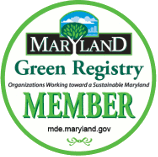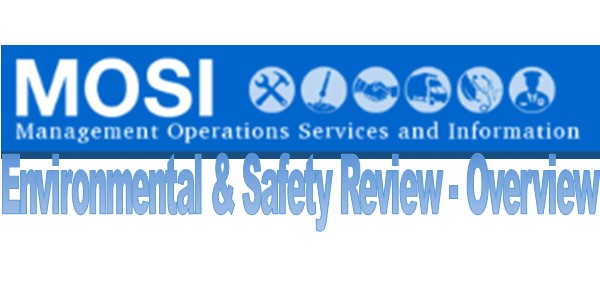Environmental Management System
- GSFC’s Environmental Management System
- Sustainability at GSFC
- What are Goddard’s high-priority environmental concerns?
- What are your environmental responsibilities?
GSFC's Environmental Management System
GSFC's environmental policy GPD 8500.1 is to consider environmental factors in the planning, decision-making, and performance of all Center activities. The Environmental Management System (EMS) enables us to reduce risk to Goddard's mission and reduce potential environmental impacts.
GSFC is committed to operating its mission without compromising our planet's resources so that future generations can meet their needs. The GSFC sustainability program consists of numerous goals ranging from greenhouse gas emissions reductions to purchasing products with lower life-cycle impacts on the environment. To achieve more sustainable operations, Goddard has implemented energy and water conservation measures, improved recycling and waste minimization, and is constructing more efficient facilities. Click this link for more information on LEED certified sustainable buildings at Goddard.
Many of Goddard's sustainability goals are addressed through facilities management, acquisition policies, and operations programs. However, some, such as recycling, can only be addressed through collective action by all GSFC employees and contractors. From conserving energy, water, and paper to recycling and properly handling hazardous waste, everyone has a role in protecting the environment, conserving natural resources, and sustaining GSFC's mission. Some of the actions you can take include:
- Turn off lights and equipment when not in use.
- Reduce, reuse, recycle, and purchase supplies made with recycled materials.
- Recirculate office supplies via the Freecycle@NASA website or send unneeded supplies to the Excess warehouse for redistribution.
- Report leaks and other facilities problems promptly to the Facilities Help Desk at 6-5555 or submit a repair ticket online through MOSI.
- Do not purchase greater quantities of a chemical than you need or can reasonably use.
For more information on Goddard's sustainability program, visit the Sustainability Management page.
What are Goddard's high-priority environmental concerns?
GSFC identified high priority environmental aspects based on their risk (or potential benefit) to our mission and the environment.
The current high-priorities for GSFC-Wallops are:
- Water Quality
- Natural and Cultural Resources
- Site Restoration
- Tank Management
- Sustainability
- Environmental Planning
The current high-priorities for GSFC-Greenbelt are as follows:
- Sustainability
- Water Quality
- Site Restoration
Environmental aspects are elements of Goddard's activities, products or services that can interact with the environment. Risks were prioritized per NASA Procedural Requirement (NPR) 8553.1, Environmental Management Systems.
What are your environmental responsibilities?
Submit new projects, facilities modifications, or new equipment installations is to the GSFC Environmental and Safety Project Review System early in the planning process. Environmental staff will:
- Ensure the appropriate NEPA documentation/analysis is prepared in a timely manner
- Identify the potential environmental requirements, issues, impacts, and required permits
- Avoid potential schedule delays and cost impacts later
Requirements to review proposed actions are detailed in GPR 8500.1D, Environmental Planning and Impact Assessment. Other Environmental requirements are:
- Goddard’s Environmental Policy: GPD 8500.1, Environmental Program Management
- GPR 8500.1, Environmental Planning and Impact Assessment
- GPR 8500.3, Waste Management
- GPR 8500.4, Air Quality Management Program
- GPR 8500.5, Water Management
- GPR-8500.8, Site Investigation and Remediation
Environmental Awareness Training is required for new employees and every 3 years
Wallops – take SATERN course GSFC-SH-EMSAT18, CLICK HERE to view training
Greenbelt – take SATERN course GSFC-SH-EAT16 or CLICK HERE to view training
Program Contacts
Ken Yargus 301-286-0518










